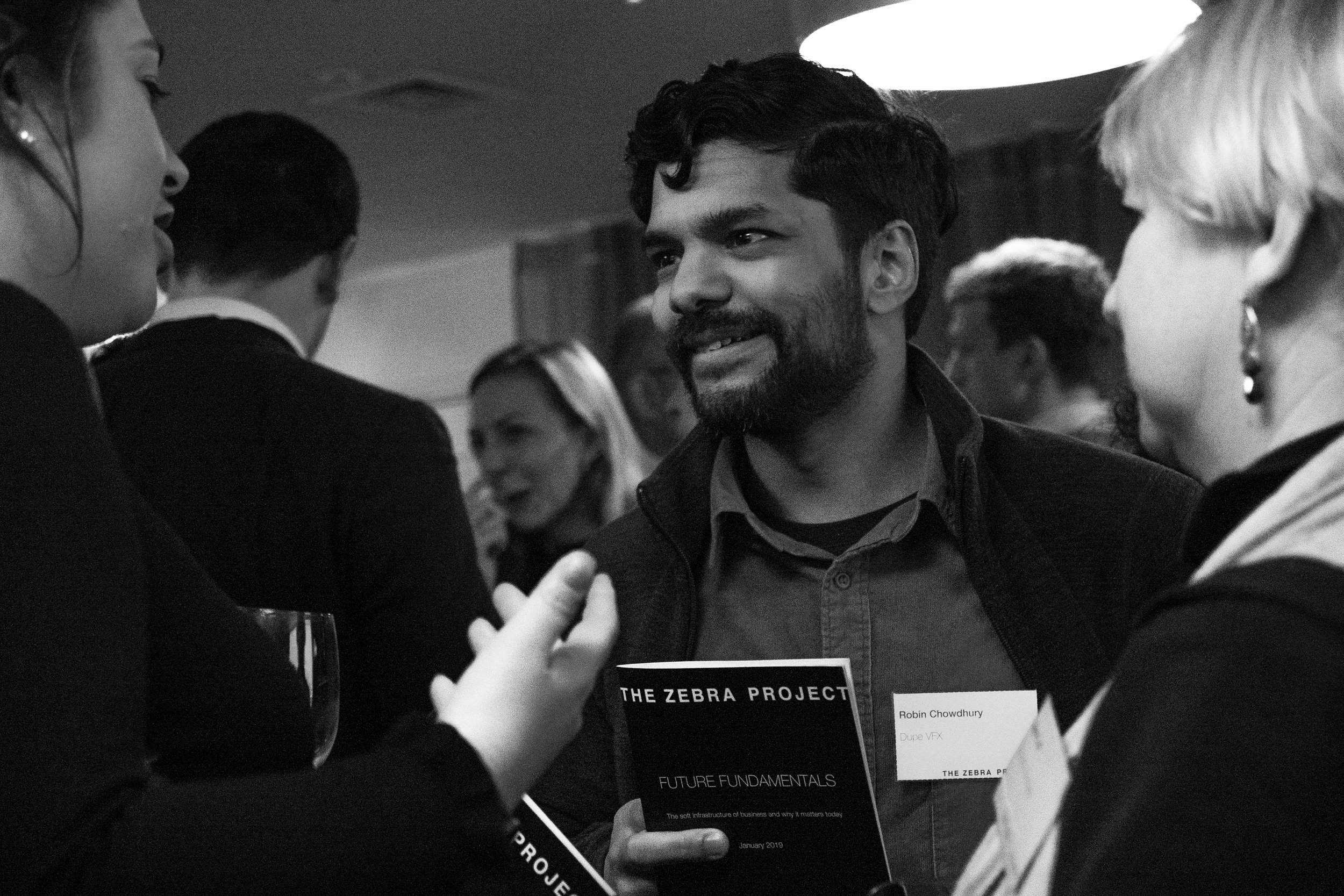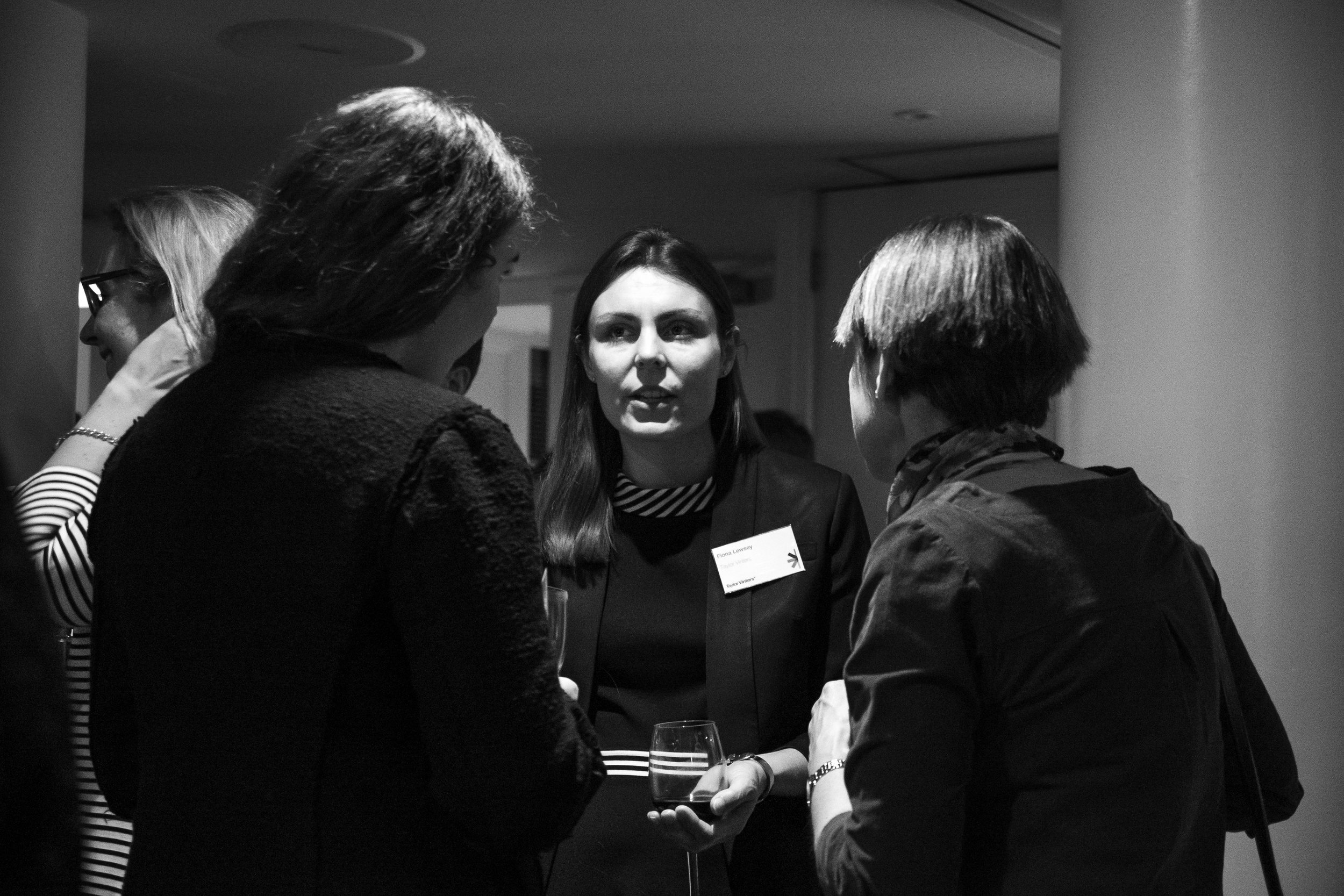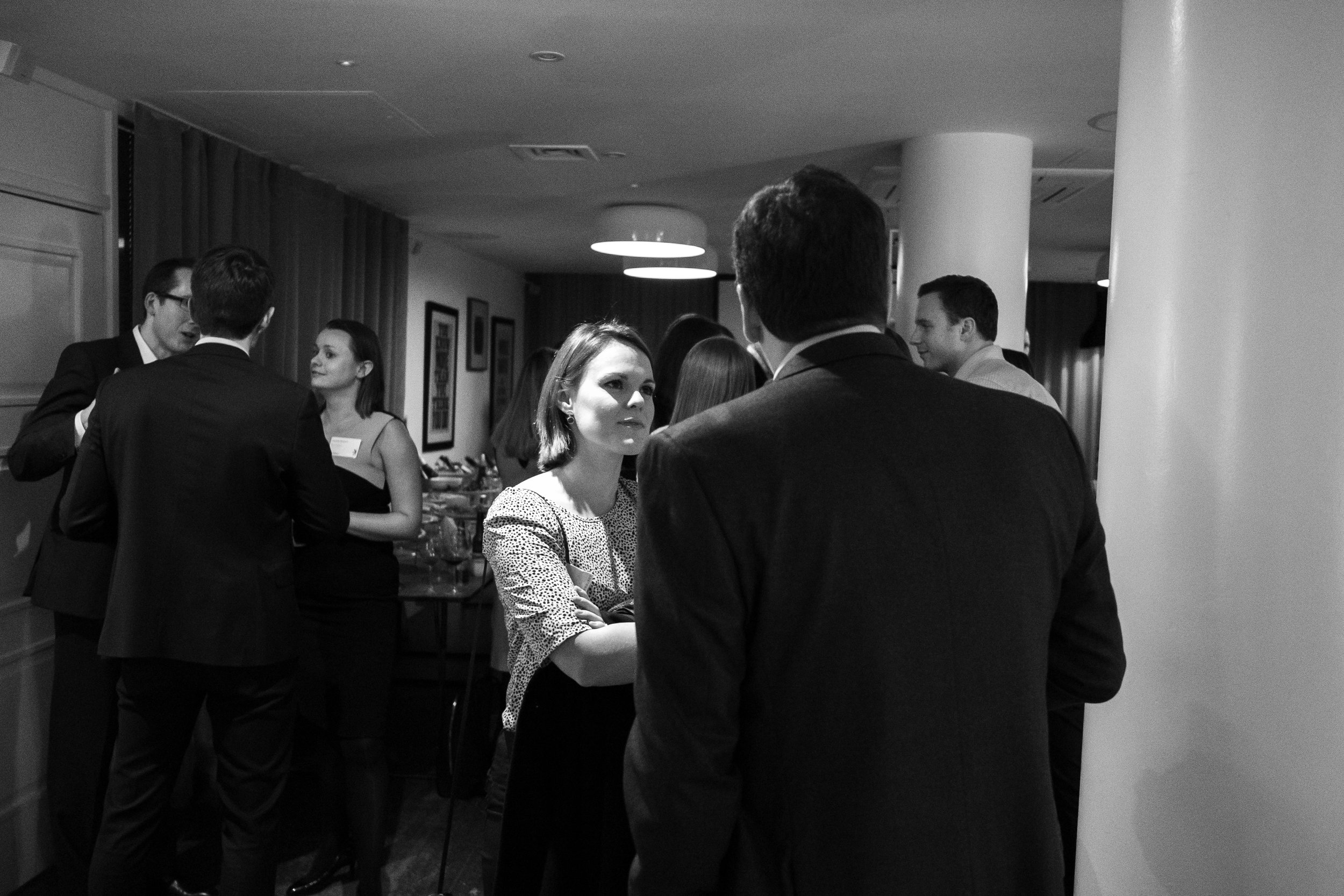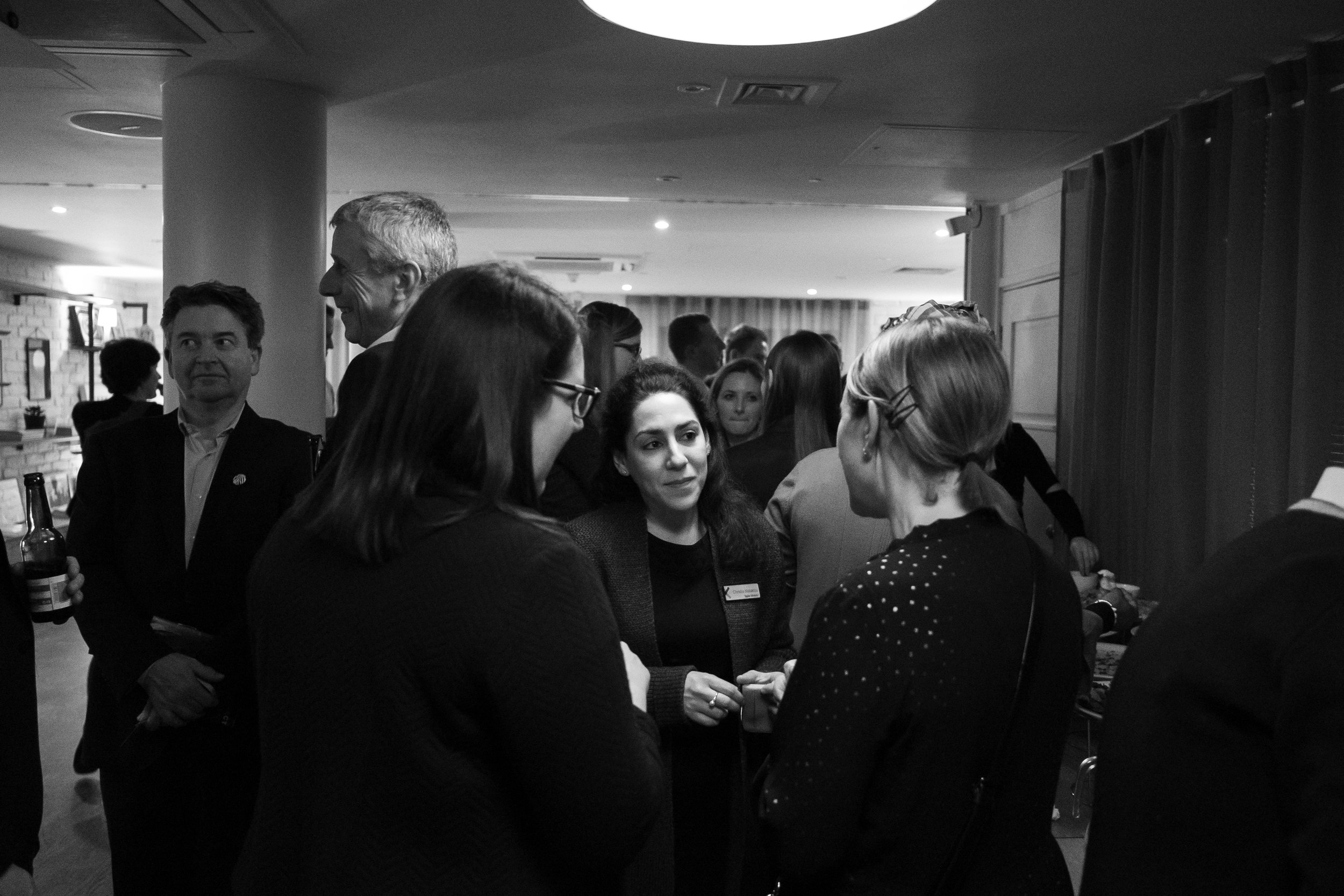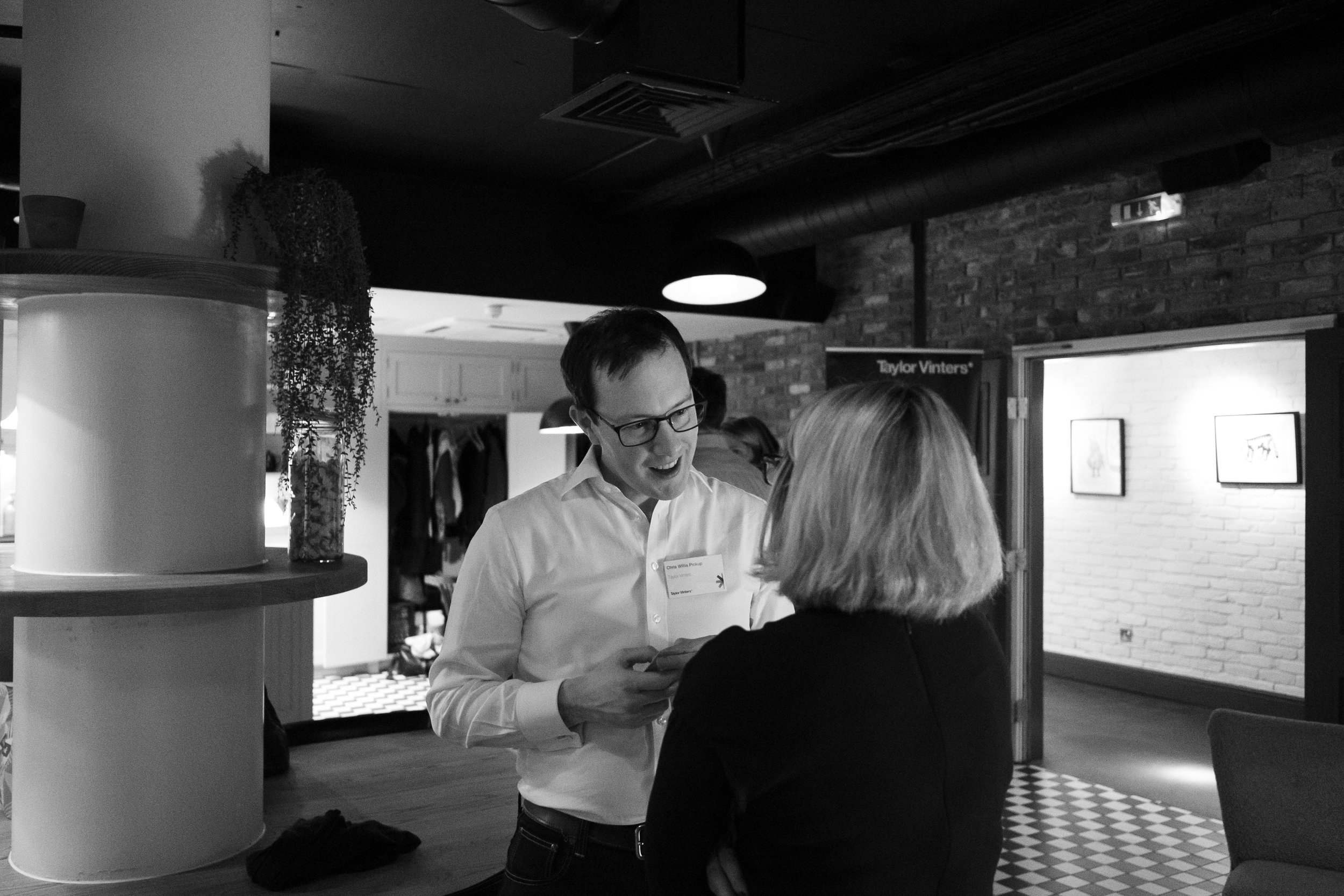Future Fundamentals – presenting findings from the first 12-months of The Zebra Project

Launching The Zebra Project in January 2018, we wanted to create a community to work with us to discern the fundamentals of future success; digging deep into what the drivers should be behind our businesses, and how we can create step changes in innovation, growth and the quality of working lives.
Over 200 business leaders, creative thinkers, academics and visionaries have participated across the eight discussions we have held so far as part of the Project and we’ve seen a fierce curiosity and desire to understand and actively shape the future, not be blindsided by it.
We’ve explored a wide range of drivers that are reshaping the way we work, live and buy and found that rather than being distracted by the latest tech fad; it is the speed of change and the scale of innovation and growth opportunities that’s driving many leaders to go back to first principles to ensure they have future proofed the fundamental aspects of their business.
These striking common features have united discussions across the Zebra sessions leading to some actionable leadership agendas emerging, which we have captured in our first Zebra Report:
Future fundamentals – the soft infrastructure of business and why it matters today.
Zebra Thinking
In conversation with Glenn Anderson, Project Lead of the Wendling Beck Exemplar Project. Talking with Matt Meyer about the vital role of natural capital in global economies, the growing risk to food security, the importance and reward of investing in nature, how collaboration brings about real-world change, creating a blueprint to protect the planet for the long-term, building environmental resilience and how it feels to be delivering something so spectacular that we may not get to experience the impact of in our lifetime.
In conversation with Lizzie Penny & Alex Hirst, CEOs and Founders of Hoxby and Authors of ‘Workstyle: a revolution for wellbeing, productivity and society.’ talking about how workstyle is more important for productivity than any other current organisational psychology, if flexible working is missing the point and how progressive organisations achieve culture at scale.
In conversation with Elliot Schreiber, Author of ‘The Yin and Yang of Reputation Management’ and Co-founder of The Strategy and Stakeholder Value Institute, talking about stakeholder expectation, organisational reputation, your greatest value creators and how you won’t find your most valuable assets on excel documents or balance sheets.
Why the future of leadership depends on a mindset shift, from skills and capabilities to personal characteristics and behaviours.
When discussing what it takes to be a good leader, conversations are frequently centred around the skills required to perform the role, but there is little collectively discussed about the characteristics and behaviours that need to sit alongside these skills. Living in a complex and developing environment, it is now more important than ever to be a thoughtful and impactful leader.
In conversation with Whitney Johnson, CEO of Disruption Advisors and Wall Street Journal best selling author of Smart Growth, talking about finding our voice and authenticity, understanding and developing our personal growth and nurturing the growth of those around us – taking a deep dive into the S-Curve of Learning – discussing exploration, the sweet spot and the coveted mastery.
In conversation with Dr Donna Hicks, Associate at the Weatherhead Center for International Affairs, Harvard University: Author of Dignity and Leading with Dignity..
Born out of her experience working within International Conflict Resolution, Dr Donna Hicks speaks with Matt Meyer about The Dignity Model and the vital role that dignity plays in the workplace, human leadership and building a culture that brings out the best in people.
In conversation with Benjamin Turner, Chief Operating Officer of Agrimetrics – the Agrifood Data Marketplace building the national infrastructure for open and ethical sharing and interconnecting of data across the agriculture sector. Benjamin discusses the importance of earning trust within the industry to foster the adoption, and growth of the data marketplace within agriculture – in turn supporting a long term sustainable future for the industry. Benjamin touches on his own personal journey that led him to Agrimetrics, and how his experiences have shaped his leadership approach as well as the foundations that Agrimetrics is built upon – with ethical data governance firmly at the heart of the business – intrinsically woven into the fabric of their working practices.
It’s hard to believe that it has been 3 years since we launched The Zebra Project with the purpose of exploring the future world of work. So much has changed since our launch and, even in the face of (and partly because of ) a global pandemic, so much progress has been made against the principles we set out with at the beginning of the project.

